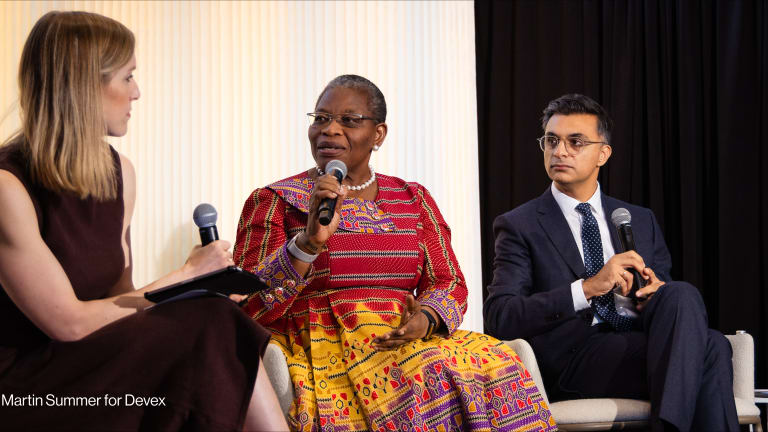Are media helping development and, if not, should they? The relation between journalism and the aid world was discussed by media and development professionals from across the globe who gathered at the European Development Days in Strasbourg from Nov. 15-17.
Journalists defended their right to follow a different agenda from that of development actors as European Commissioner for Development Louis Michel and African Union Commission Chairperson Jean Ping announced a roadmap for creating a joint media watch.
The crucial role of journalists in exposing human right violations in violence-stricken regions was highlighted by a number of events at the forum, including the awarding of the Lorenzo Natali journalism prize. Reporters from both western and African newspapers and TV stations used the Development Days as a platform to debate the issue among themselves and with their institutional counterparts.
Journalists presented results from a media workshop that suggest aid organizations do not understand the dynamic of private business to which media operators have to comply. Jonathan Clayton, Africa correspondent for the London Times, stressed this point when responding to complaints voiced by E.U. representatives and African reporters during one roundtable event, that the western media lacked information on Africa - and good news, in particular.
"There is a limit to the number of stories we can publish on Africa everyday because our readers don't want that many," he said. "That's the harsh reality of the market."
Forum participants such as Jean-Michel Debrat, deputy director general of the French Development Agency, acknowledged the difficulties development organizations have communicating with the media despite their importance forging public opinion on humanitarian topics.
"Development operators need to try and speak the same language as the media," he said.
Journalists, for their part, stressed their dependence on non-governmental organizations to gain access to remote or dangerous regions. In such cases, information is often withheld from the media audience to protect local humanitarian workers against government repression.
BBC World news presenter Anya Sitaram said that journalists are often forced to comply with NGO priorities due to the conditions they have to face in some world regions.
"Of course, journalists are completely separate from NGOs. They have a different agenda, but they rely on NGOs for entering into particular countries," she said, adding that "journalists are in many ways prevented from reporting things the way they would like to do because of the lack of access to particular countries."
Development and European representatives demanded a greater E.U. commitment to advancing media freedom in countries affected by major human rights violations - a call that came two months after a forum sponsored by the E.U. and African Union in Ouagadougou, Burkina Faso, which resulted in an agreement on the creation of an international media charter and African portal and media watch.
Not all African correspondents who told tales of repression and lack of freedom at the Strasbourg event called for additional European support, however.
"African journalists shouldn't rely that much on Europe," said Omar Belhouchet, editor of Algerian daily El Watan, as he stressed the need to make African media and institutions fully responsible for their behavior.







